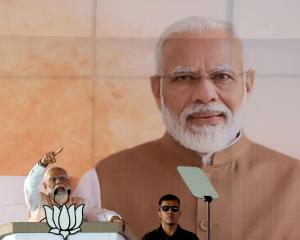Being out of politics and back on the farm does have its upsides.
The belt has come in a couple of notches, the woodshed is better stocked and I do get to see the family for more than just fleeting visits home.
Conversely, I’ve resumed grizzling about the weather (bloody dry here in Lawrence) and the wool price, so I guess not that much has changed.
Knowing what I know from the inside, it is interesting watching the growing frustration of farmers with the Government and the various regulations being foisted upon us.
To be fair, I am not seeking to rewrite history. This hasn’t happened only in the past six months. It was building when I was involved and that is quite likely why I’m writing this as a member of the public as opposed to a member of parliament.
I’ve watched the emergence of the Groundswell group and applaud them for having the motivation to rally support to push back on some of these measures.
It’s much easier to complain to your neighbour over the boundary fence than to actually try to do something about it.
At the core they are right. Some of the regulations like mandatory sowing dates and complex consenting requirements are unworkable and overly bureaucratic.
At a recent farmer meeting I attended in Waitahuna called by the Otago Regional Council, it soon became apparent that even the entity charged with overseeing these regulations was unable to fully explain what the actual requirements were.
It was no surprise to me the Government has postponed the rules for a year so that it can panelbeat them into a workable proposal.
Where I do differ from Groundswell is where they have not only trained their guns on the Government but seemingly have also turned on existing farmer leadership in the form of Federated Farmers and Beef+Lamb New Zealand.
By way of disclosure, I have recently joined the executive of Otago Federated Farmers. I’ve done so because I have seen first hand the excellent work their team has done on behalf of farmers locally.
In Simon Davies, in Otago and Bernadette Hunt, in Southland, they have two excellent young farming leaders heavily engaged in representing farming interests on regional issues and contributing southern voices on national issues.
While in Parliament, I also worked closely with B+LNZ and DairyNZ and they were both very proactive in proposing alternative policies and pursuing collaboration between farming organisations. It is critical we present a united front wherever possible.
I can absolutely assure farmers that their farming leaders are working exceptionally hard to engage with the Government and guide them to a better place.
Initiatives like the He Waka Eke Noa partnership on climate change and the recent pause on the introduction of harsh intensive winter grazing requirements are tangible proof that our farming leadership is proving to be effective.
It also shows the power of working together. While farmers may not be completely happy with the outcomes, they are significantly better than the original proposals.
The Government will not mind one bit if our sector descends into infighting, division and disunity. This will allow them to ram through rules, regulations and laws without us even having the chance to influence policy.
We all need to stick together because we have the same goal — ensuring sensible and practical policies which work on the ground.
Farmers should be wary about shooting the messengers like B+LNZ, Federated Farmers and DairyNZ — that’s akin to shooting ourselves in the foot.
While it might be tempting to believe that we only need to drive tractors up the steps of parliament to show our dissatisfaction, that on its own would not deliver more sensible outcomes.
The reality our farming leaders are facing is that they are dealing with a government that sits on a massive electoral mandate.
You simply cannot bully a government which has such a huge majority with significant support parties up its sleeve on environmental issues.
Just saying no is not an option and would likely lead to even more prescriptive regulation. They call it ‘‘being in power’’ for a reason.
New Zealand is now a much more urban, liberal, diverse and multicultural society and the make-up of our parliament increasingly reflects this. New Zealanders have less first-hand connection to the practicalities of how their food is produced.
The next election will be a generational tipping point where the millennial vote will outnumber the baby boomers and we can see issues like climate change, water quality and animal welfare are of keen importance.
Reassuring them we are serious good stewards of our land and our animals is likely to be an ongoing challenge.
The good news is, while the Government probably does not need our votes to hold power, they most certainly need the wealth we create.
New Zealand simply cannot maintain a first world economy without the income generated from exporting our world class food and fibre.
This is where our farming leaders do hold levers and can reason with government but can only do so by offering more practical alternative solutions.
That deserves every farmer’s support.
- Mark Patterson is a Lawrence farmer and former New Zealand First list MP.












